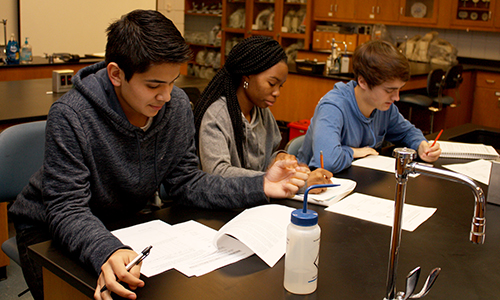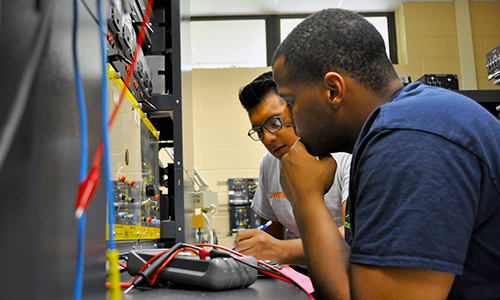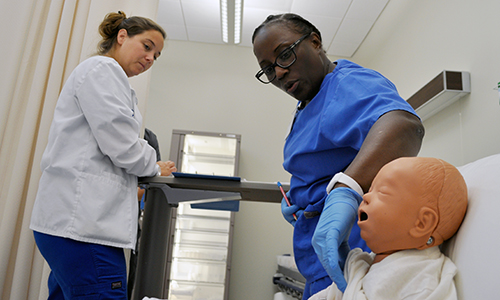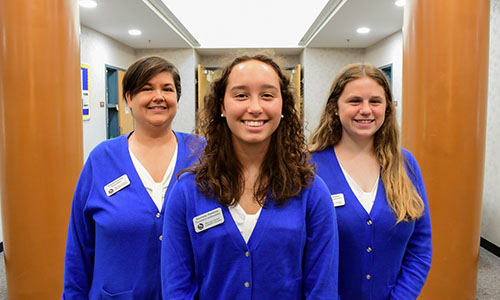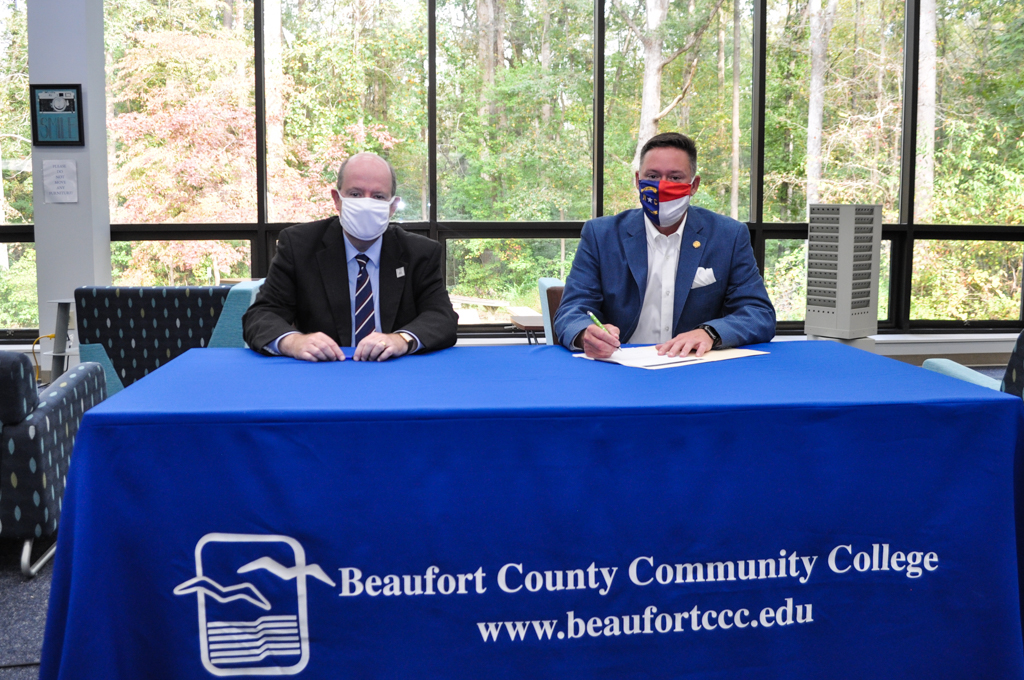
USDA awards $330,000 to BCCC for distance education
The United States Department of Agriculture (USDA) Rural Development Office announced a $329,983 grant to Beaufort County Community College to create more options for distance learning. Robert Hosford, State Director for USDA RD, announced the grant award along with college administrators and representatives from BCCC’s congressional delegation. The grant will allow BCCC to expand distance learning by retrofitting two additional classrooms with broadcast equipment on the BCCC campus, providing PolyCom equipment and delivery expansion to Pungo Christian Academy, Terra Ceia Christian Academy and Unity Christian Academy for the first time, and expanding capabilities at Northside High School, Ocracoke School and Southside High School. Serving Beaufort, Hyde, Tyrrell and Washington Counties–some of the most rural parts of North Carolina–BCCC strives to create innovative ways to increase college transfer and dual-enrollment options to high school students across its service area.
Beaufort County Community College serves students across a 2,100 square mile area. It currently has broadcast capabilities at Columbia Early College High School, Northside High School, Ocracoke School, Mattamuskeet Early College High School, Washington County Early College High School, and Washington High School. In 1998, USDA Rural Development provided Beaufort County Community College with $210,000 to kickstart its distance learning. These free, broadcast college classes provide access to high school students who would otherwise face up to a 120-mile roundtrip commute.
In 2019, USDA awarded $82,000 to BCCC to outfit its Hyde County Davis Center in Engelhard and the Washington County Center in Roper with telecommunication carts for broadcast classes. These centers are focused on workforce training, small business workshops and personal enrichment classes for community members.
Broadcast classrooms are equipped on both sides of the telecast so that students can interact with the instructor and the rest of the class as if they were all in once space. Classrooms are equipped with mulitple microphones and cameras to allow for numerous views and interactive conversation.
With this funding from USDA Rural Development, the college can expand its courses into three additional private schools–Pungo Christian Academy, Terra Ceia Christian Academy, Unity Christian Academy--and expand class offerings at three public high schools: Ocracoke School, Northside High School, and Southside High School. The grant will purchase and install teacher and controller work desks, codecs and other equipment that will allow the three high schools to offer dual-enrollment classes directly on their campus. The broadcast classes will save Unity Christian Academy and Pungo Christian Academy students a 48-mile roundtrip and Terra Ceia Christian School students a 34-mile roundtrip.
These classes mean that high school students can incorporate free college classes into their schedule without disrupting their day. Due to the lack of affordable transportation options in the region, traveling back and forth to campus is not an option to many students in the region.
By taking dual-enrollment classes, high school students can get a head start on college while still living at home, helping bring down costs and making a bachelor’s degree attainable to students who otherwise could not afford a four-year education. Many high school students who take college classes also find that taking college classes with an age-diverse class requires a higher degree of responsibility and maturity, traits that also carry over into their rest of their lives.
“We have all had to learn new technologies with our current safety protocols, but our college has been engaged with distance learning for over 20 years.It’s is the best way to bring college within reach of the rural communities we serve,” said Dr. David Loope, BCCC President. “The world is moving fast, and we must ensure that physical distance does not prohibit our students from succeeding academically and economically.”
USDA Rural Development is committed to helping improve the economy and quality of life in rural America. Through their programs, they help rural Americans in many ways. They offer loans, grants and loan guarantees to support essential services such as housing, economic development, health care, first responder services and equipment, and water, electric and communications infrastructure. USDA RD will administer $38 billion in loans, loan guarantees and grants through its programs in the current fiscal year.

